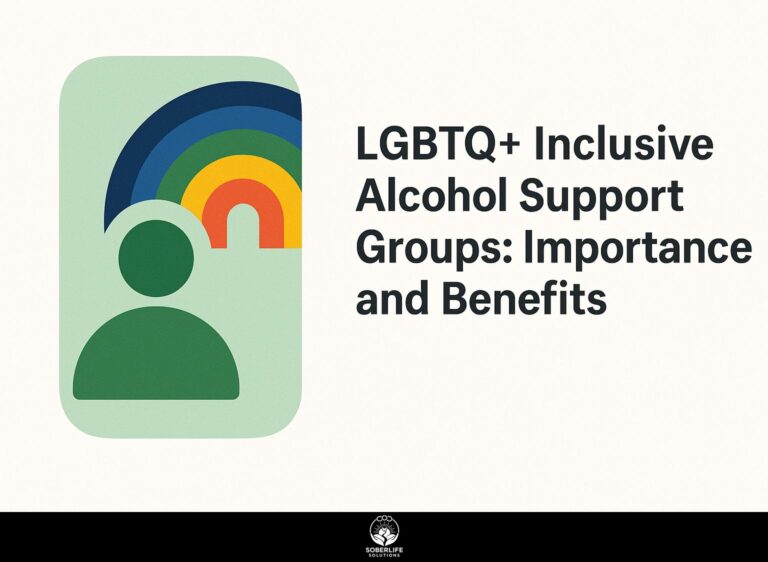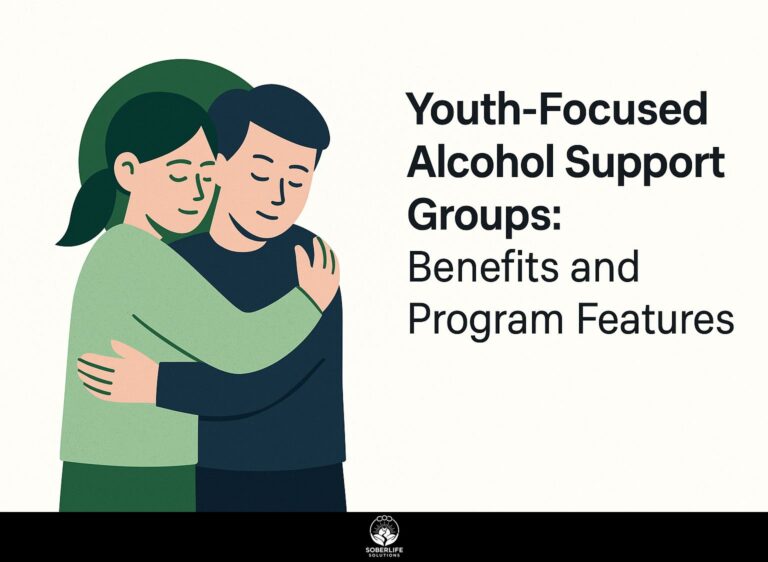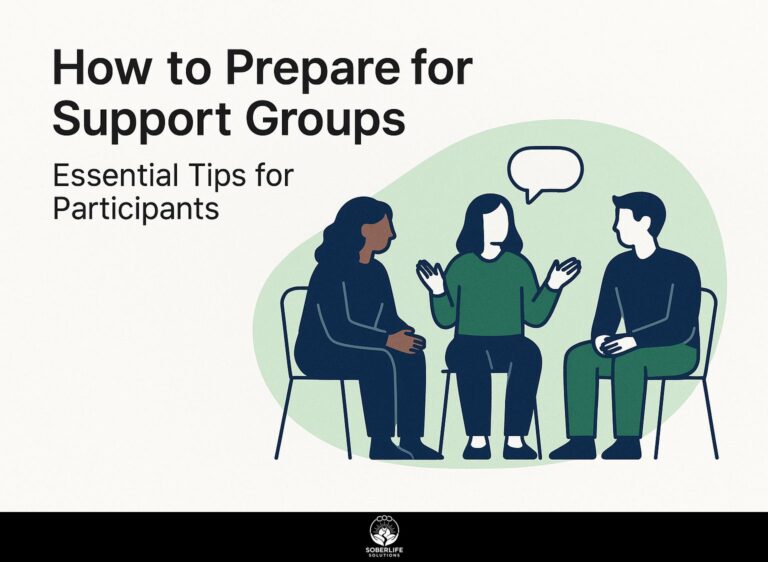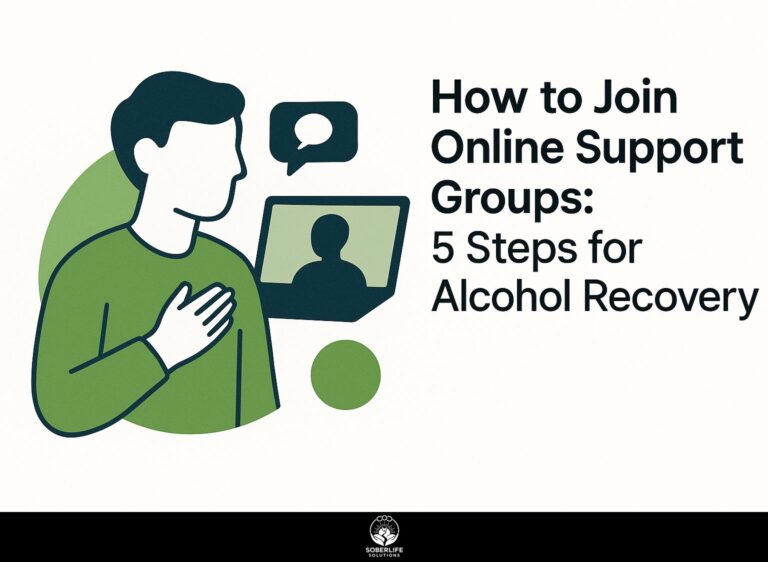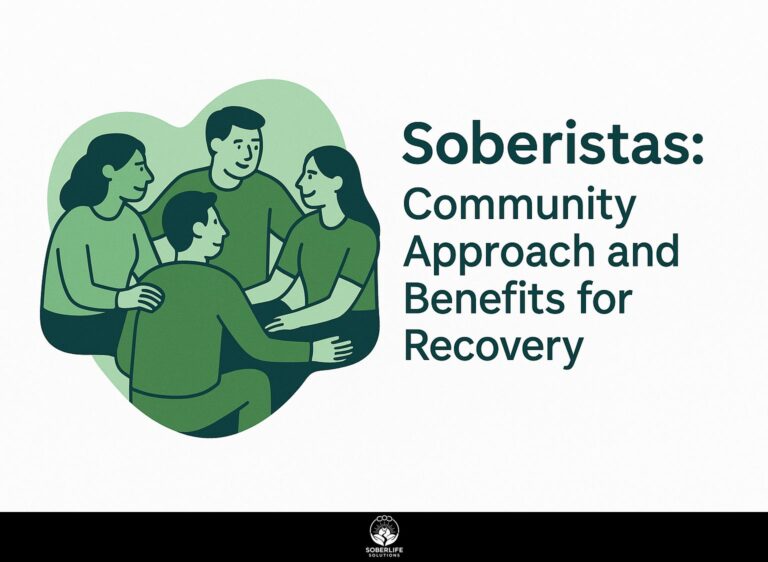How to Choose a Support Group? Key Tips for Recovery
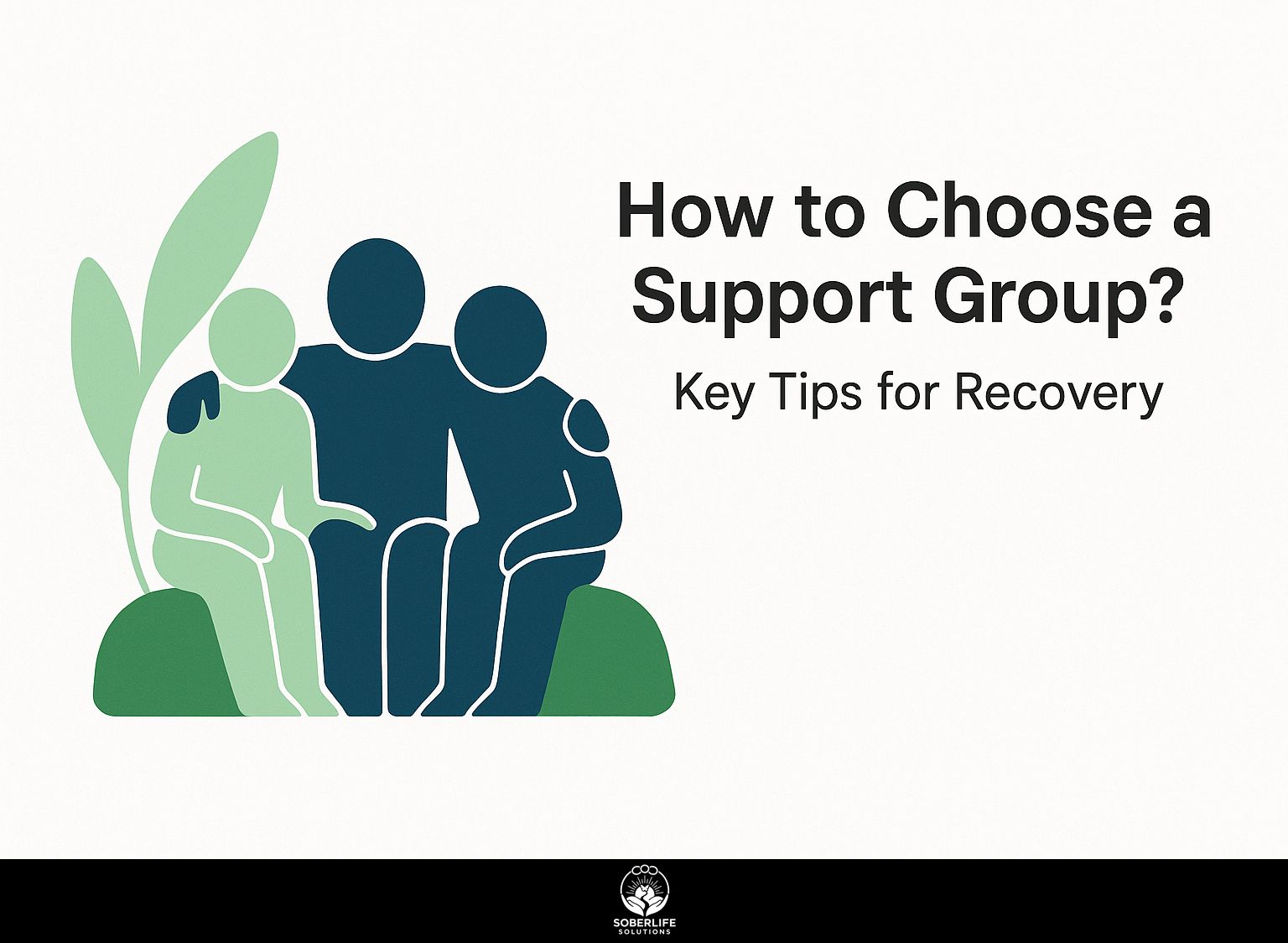
Picking a suitable support group is crucial for individuals facing issues such as cancer or heart disease. Support groups offer essential emotional support and a chance to connect with others who share common experiences. With help from a healthcare professional, these groups can offer different ways to manage stress that suit your needs. This article offers important advice to guide you in choosing the best group for your recovery path, helping you connect with a community that fits well with you.
Key Takeaways:
Understanding Support Groups
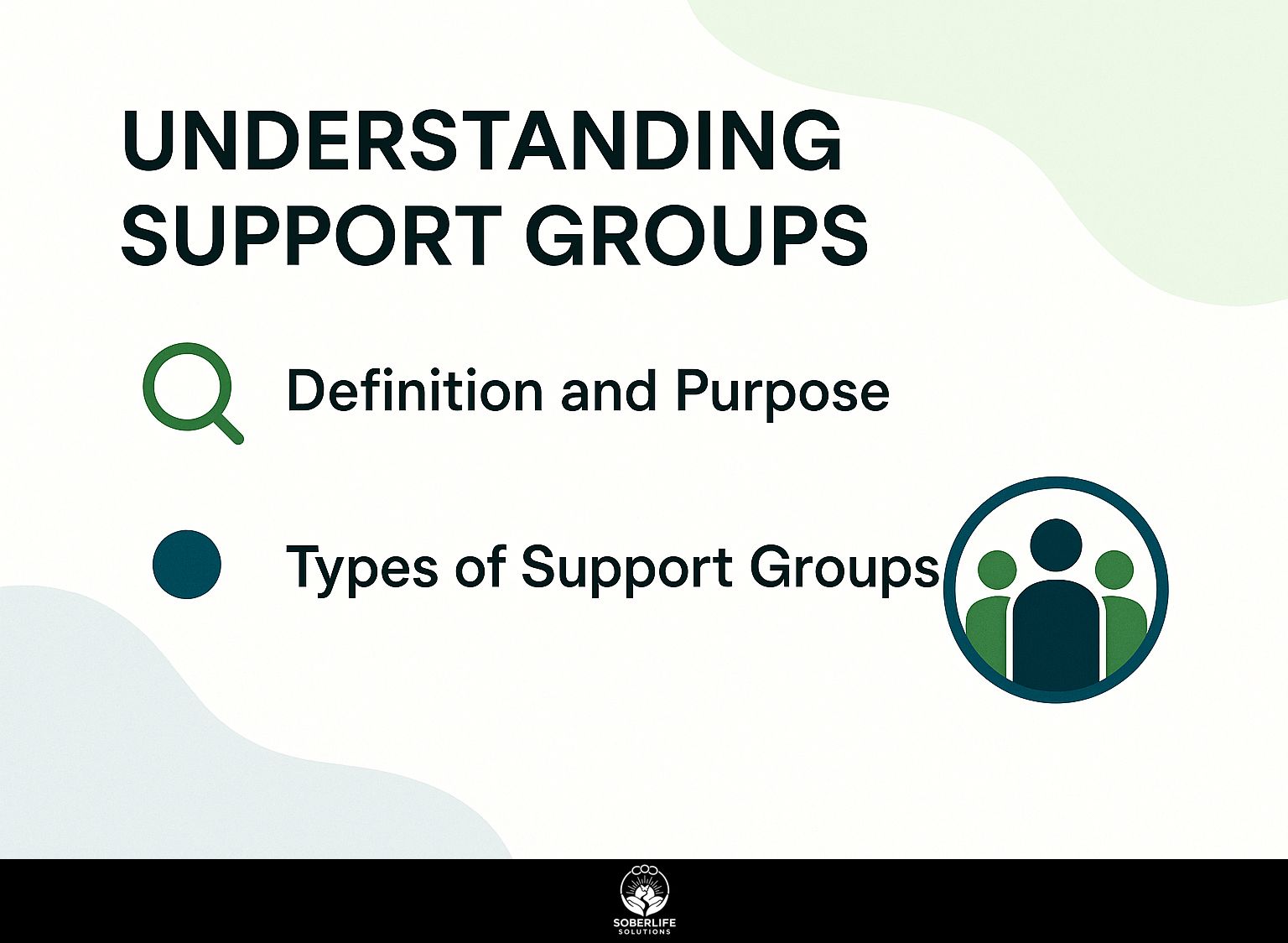
Support groups are important networks for people looking for emotional, informational, and psychological help from others who have faced similar experiences and difficulties. As highlighted by Psychology Today, support groups provide a valuable space for individuals to connect with others, offering not just emotional relief but also practical strategies for coping with life’s challenges. The Value of Support Groups article elaborates on these connections. Related insight: How to Build a Support Network: Key Strategies can further enhance your understanding of establishing effective support systems.
Definition and Purpose
Support groups are defined as gatherings of individuals who share common experiences related to specific health conditions or emotional challenges.
These groups serve various essential purposes. They provide emotional safety, allowing members to express feelings without judgment.
By sharing methods to handle problems, participants learn useful strategies to cope with them. Support groups create a sense of community, helping people feel less alone.
Statistics show that individuals involved in support groups have reported a 30% increase in mental health improvements, highlighting the positive impact of connection and shared experience.
Whether it’s in-person or virtual, these gatherings can greatly improve well-being.
Types of Support Groups
Support groups can be categorized into two main types: online groups for virtual support and in-person meetings for face-to-face interaction.
Online communities, such as Mayo Clinic Connect, provide privacy and ease of access, which is great for people with movement difficulties or those who find face-to-face meetings awkward. According to Frontiers in Digital Health, these platforms are increasingly effective in offering support across varied geographical locations. For a closer look at the growing trend of virtual recovery communities, explore our insights on virtual recovery groups trending.
On the other hand, face-to-face groups like Alcoholics Anonymous help people connect and hold each other responsible during meetings.
Each type has its strengths: online support can offer different viewpoints from various places, while in-person meetings often create stronger connections through experiences shared together.
Evaluate your personal comfort and needs to choose the most beneficial format for you.
Assessing Your Needs
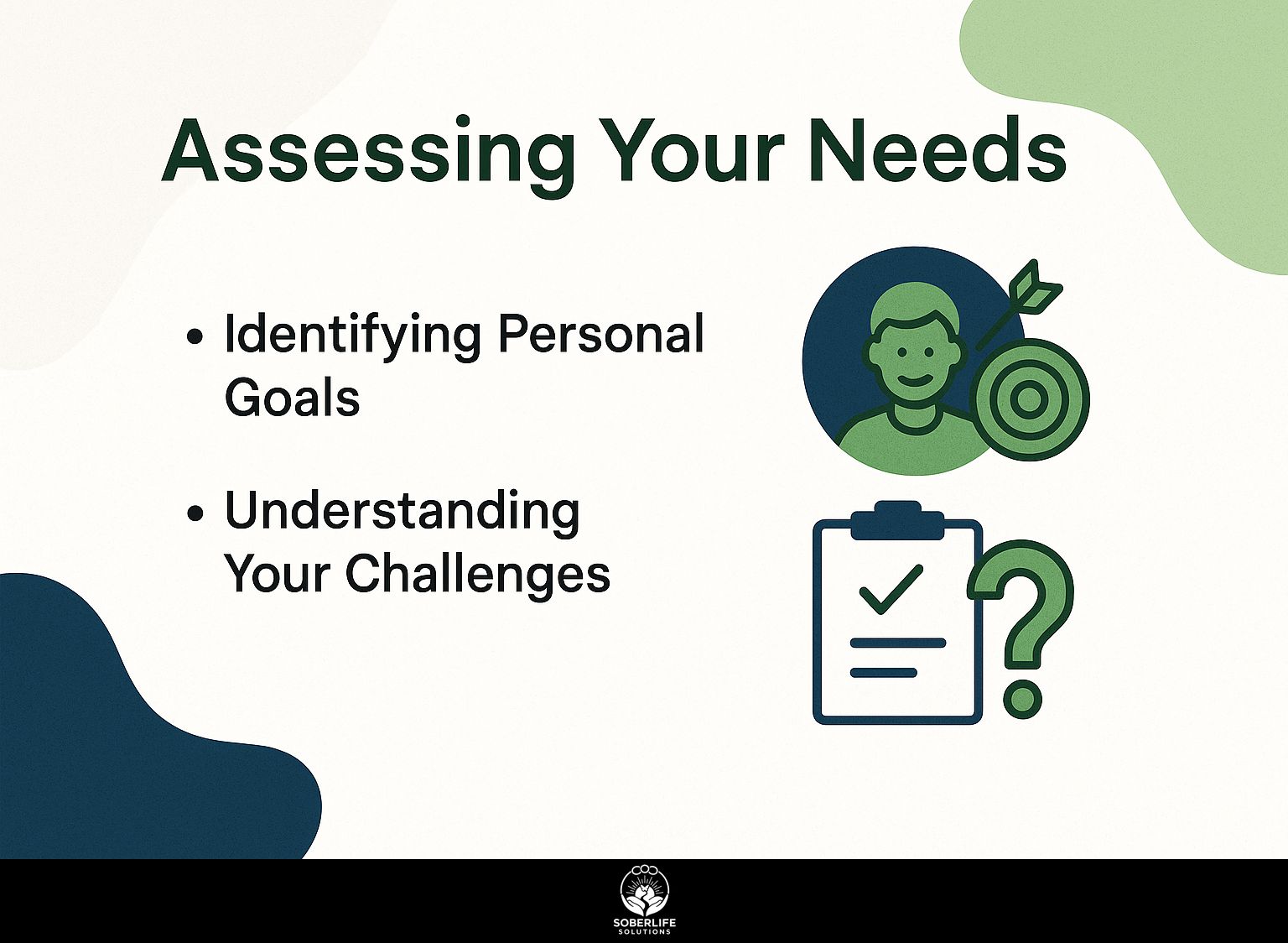
Before joining a support group, it’s important to look at your own needs and difficulties to choose the one that best supports your mental and emotional health.
Identifying Personal Goals
Setting personal goals can make your time in a support group more beneficial by matching your aims with the group’s purpose.
Start by clarifying your specific desires. For example, you might want to improve your ways of dealing with grief or improve how you talk with healthcare professionals.
A practical first step is to use a simple worksheet: write down your goals, identify three actionable steps towards each, and set a timeline for completion.
This could look like:
- Attend one more meeting per month,
- Practice one new coping technique per week, and
- Schedule a monthly check-in with your healthcare provider.
Regularly revisiting and adjusting your goals will keep you engaged and motivated.
Understanding Your Challenges
Knowing your specific challenges, such as handling grief or coping with a chronic illness, helps you make good decisions about joining support groups.
To better understand, try writing about your emotions and experiences in a journal. Allocate 10 minutes daily to jot down emotions or situations that trigger discomfort.
Discuss these topics with a mental health professional to learn more. You could look at online communities like Reddit or specific forums about your issue, letting you connect with people who have similar experiences.
This method expands your view and reduces loneliness, which is important for healing.
Finding the Right Group
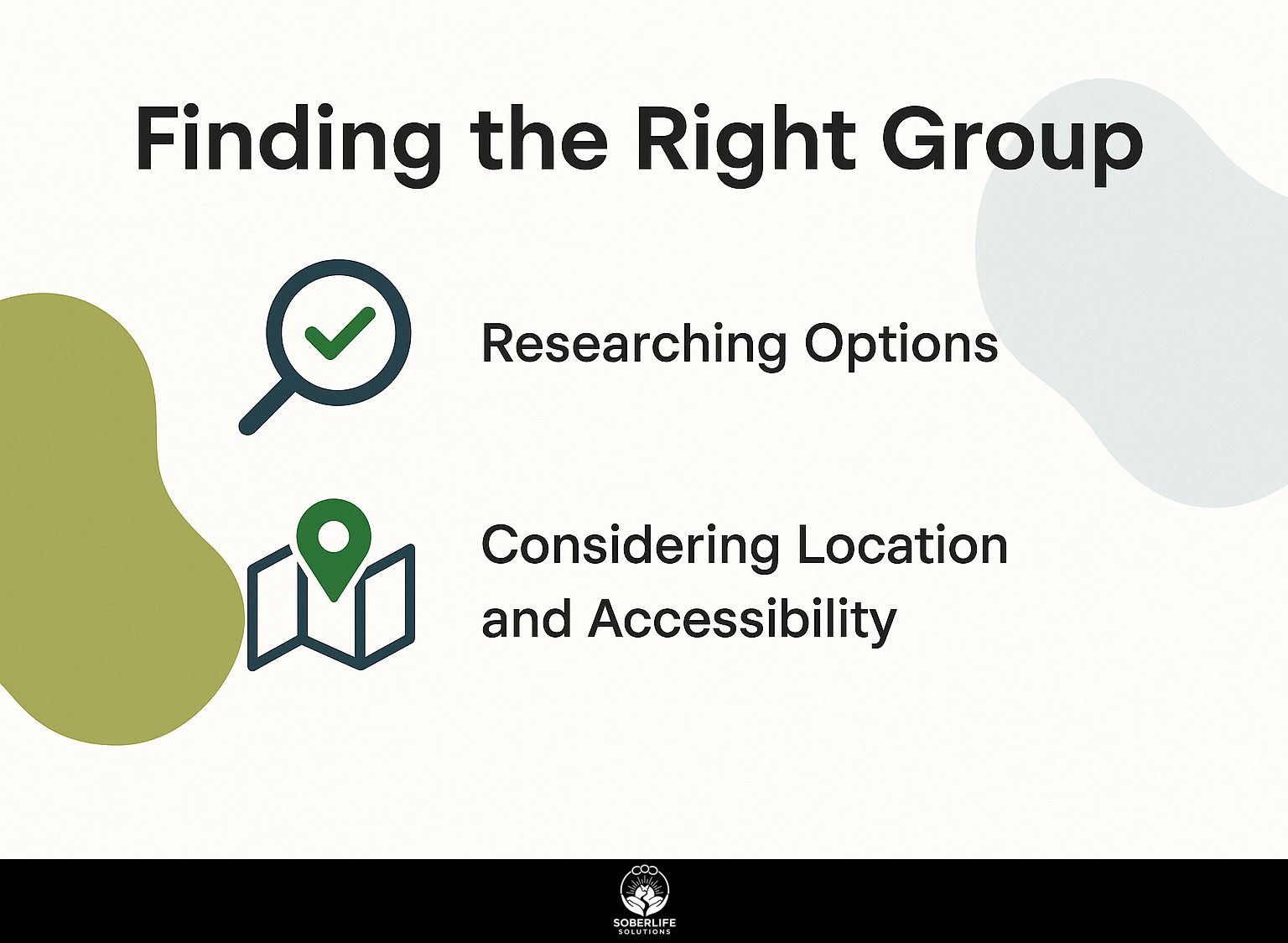
Picking the right support group means looking into the details and figuring out what you need.
Check how the group is run and make sure you can go without hassle. If you’re preparing to join, you might find some helpful advice in our essential tips for participants.
Researching Options
Researching available support groups can be done through various channels, including healthcare professionals, online directories, and community organizations.
Start by talking to your doctor or therapist, who may suggest local groups that meet your particular needs, like the American Cancer Society for cancer support.
Online directories like Psychology Today’s ‘Support Groups’ tool can help you find groups based on your location and issue. Check out the Substance Abuse and Mental Health Services Administration’s website for verified resources.
When looking at a group, think about why it exists, the qualifications of the leaders, and feedback from past members to check its reliability and whether it provides a positive atmosphere. In fact, the SAMHSA outlines the significant impact of support groups, helping individuals connect with local programs that provide mental health, drug, or alcohol assistance (as noted by the Substance Abuse and Mental Health Services Administration).
Considering Location and Accessibility
Location and accessibility are critical factors to consider when selecting a support group, especially for those with mobility issues or time constraints.
To assess convenience, start by checking out online tools like Zoom or Google Meet, which are flexible and easy to use.
Use Google Maps to find local groups within a comfortable distance. Consider barriers such as transportation, timing conflicts, and personal comfort with face-to-face interaction.
For those unsure about commitment, try attending a few sessions online before transitioning to in-person meetings. This approach allows you to gauge the group’s fit while minimizing initial discomfort.
Evaluating Group Dynamics
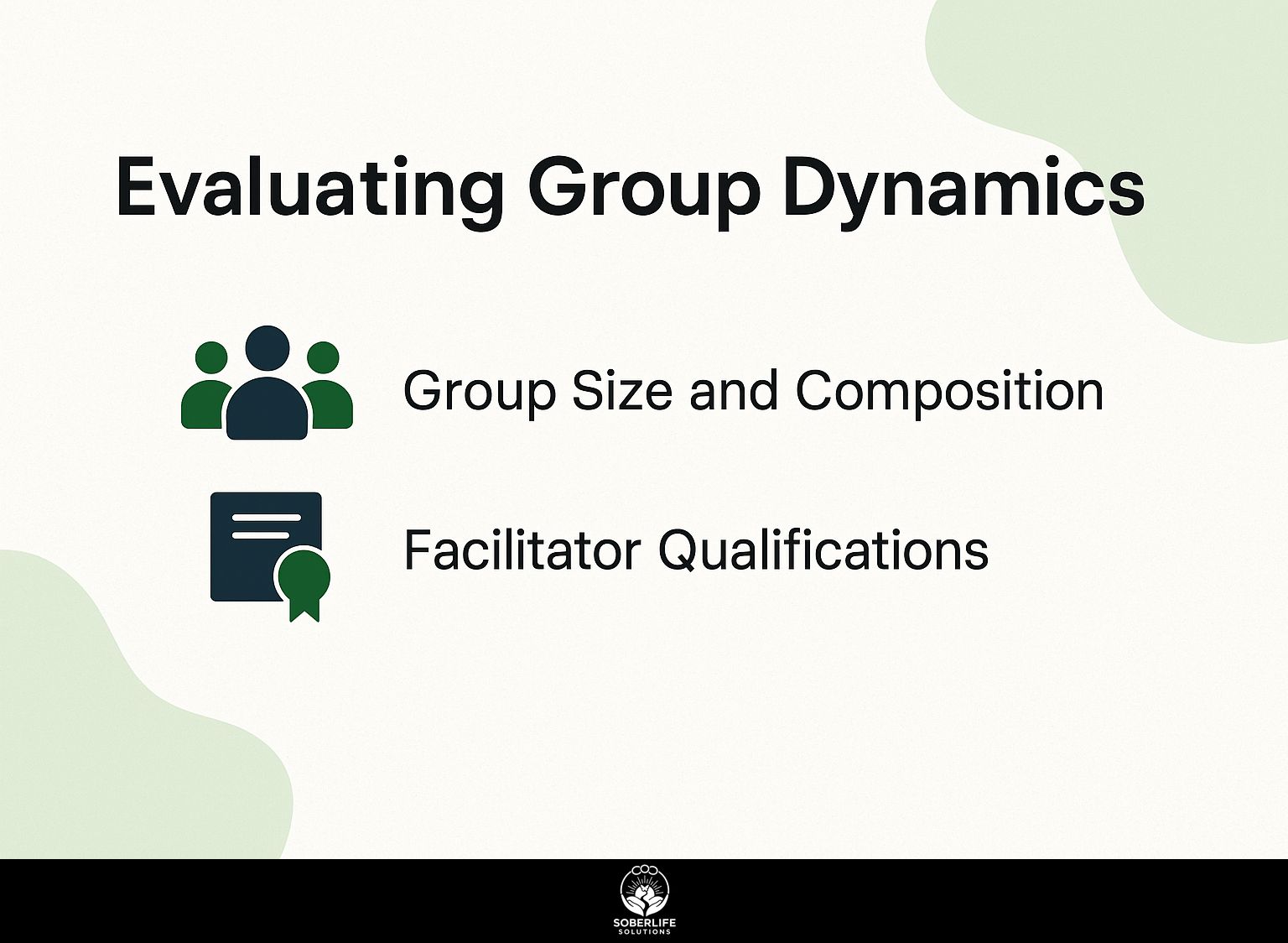
Learning how people behave in groups is important for making support groups work well, as it affects both how members feel and the outcomes they achieve. Understanding these dynamics can significantly enhance the effectiveness of group sessions. For participants looking to maximize their involvement, learn more about essential preparation tips that contribute to successful group engagement.
Group Size and Composition
Group size and composition greatly influence the effectiveness of support groups, with smaller groups often allowing for more intimate discussions.
Big groups can provide different viewpoints and resources. For instance, groups with 5-7 members create a supportive yet manageable environment, allowing for deeper connections.
On the other hand, groups larger than 10 people might reduce individual involvement but can gain from different viewpoints and backgrounds. To find the right balance, consider the group’s purpose: therapeutic sessions often thrive in smaller sizes, while educational groups may gain from a broader range.
In the end, focus on being flexible, changing the size based on the group’s behavior and particular needs.
Facilitator Qualifications
The qualifications of a support group facilitator can significantly impact the group’s effectiveness and the quality of discussions.
Key qualifications to consider include relevant training in mental health, such as a degree in psychology or social work, and certifications like the Certified Peer Specialist (CPS) or National Certified Recovery Coach (NCRC).
When talking to possible leaders, ask about their experience with similar groups, how they manage conflicts, and how they create a welcoming and safe space.
A guide with strong mental health knowledge and a real grasp of the group’s needs will improve the support group’s experience.
Trial and Feedback
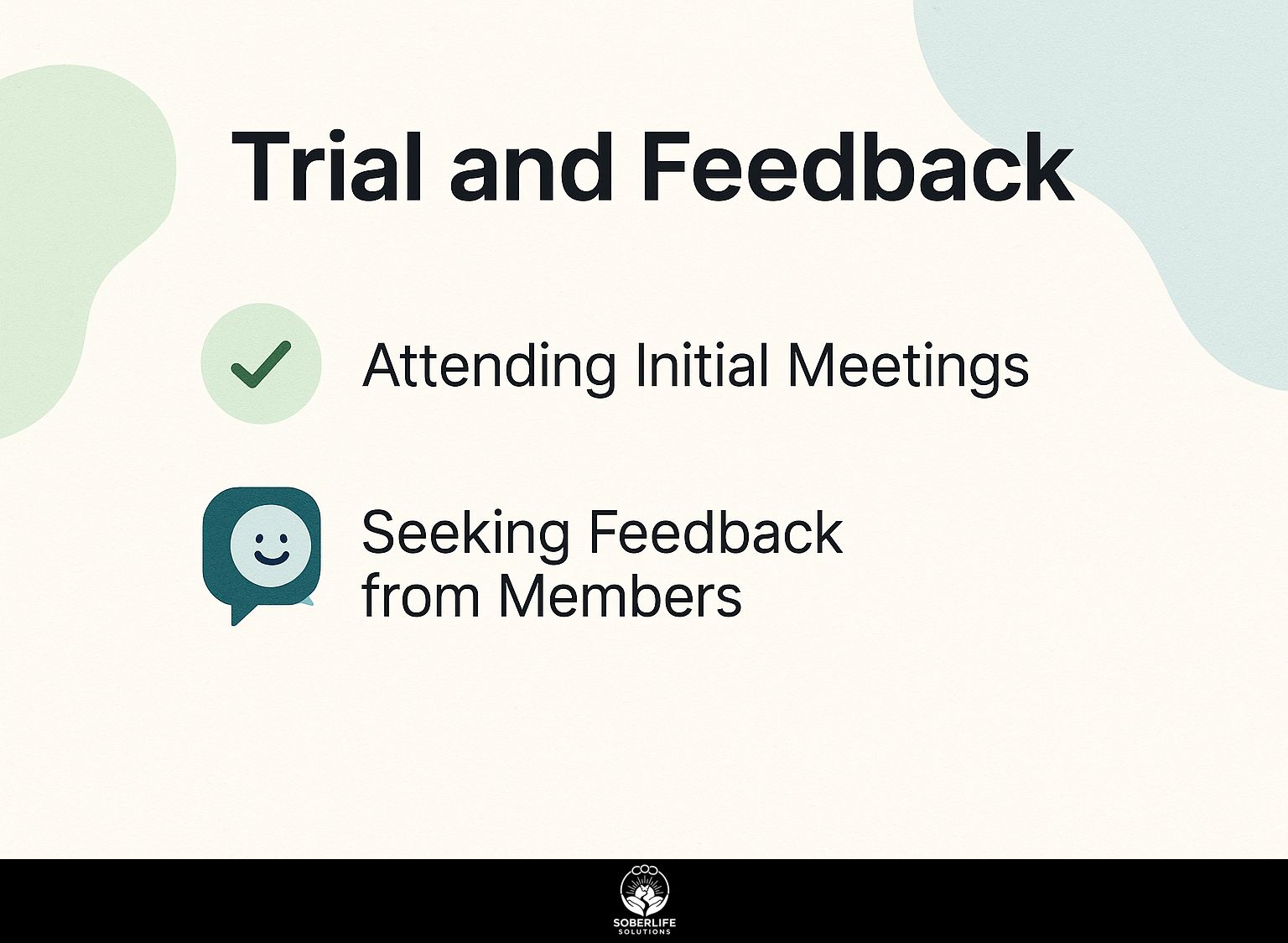
Joining the first meetings and asking for opinions can show if a support group matches what you’re looking for.
Attending Initial Meetings
Going to first meetings lets possible members see how the group works and decide if they feel comfortable.
To get the most out of these first meetings, come ready with some open-ended questions to start a discussion, such as asking about members’ experiences in the group.
Observe how others engage; take note of body language and the comfort level with sharing personal stories. Pay attention to the group’s response styles-do they encourage sharing, or do they seem reserved? This will help you gauge whether the environment feels supportive and welcoming.
After the meeting, reflect on your feelings and consider if you would feel comfortable participating regularly.
Seeking Feedback from Members
Getting honest feedback from current members can give useful information about how well the group works and the general feel of the environment.
To gather useful feedback, consider asking specific questions such as:
- What do you find most beneficial about this group?
- Are there aspects you think could improve?
- Have you faced any challenges while participating?
Keep these conversations private to encourage truthful answers. You can use anonymous surveys with tools such as Google Forms or SurveyMonkey for this task. These methods encourage open dialogue and can help identify both strengths and areas for growth within the community.
Commitment and Consistency
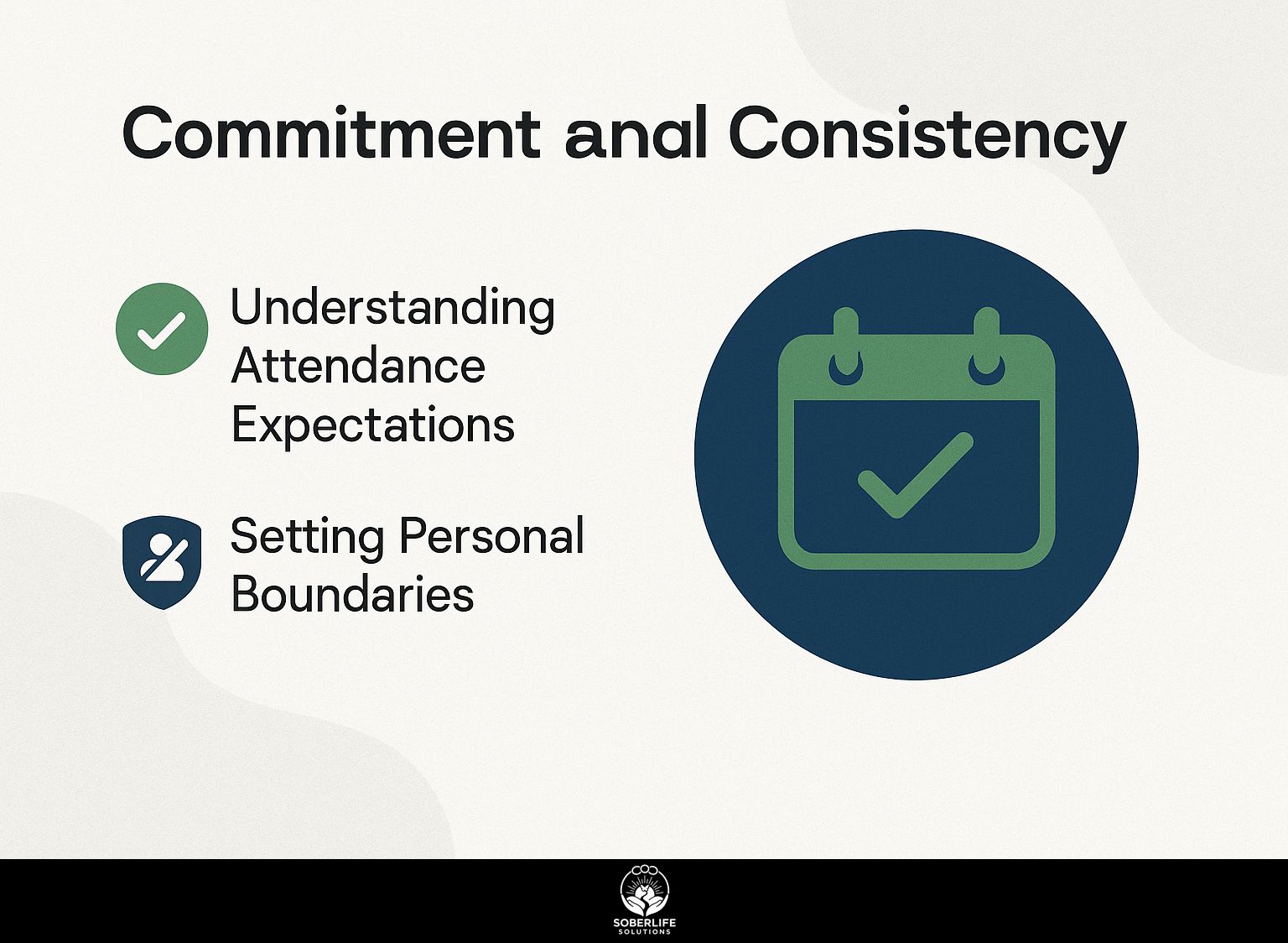
Knowing the dedication needed for regular involvement is important for getting the most out of a support group.
Understanding Attendance Expectations
Many support groups have rules about how often members should attend. It’s important for members to know these rules to stay committed and make sure the group runs smoothly.
Members are usually encouraged to attend meetings at least once a month to build relationships and support unity. Regular involvement helps keep you responsible and helps you develop personally.
To keep attending meetings regularly, use tools like Google Calendar to help you remember. You might set a personal target, like going to 90% of meetings over six months.
Engaging with fellow members can reinforce your commitment; finding an accountability partner within the group can provide that extra motivation to stay on track.
Setting Personal Boundaries
Creating personal limits is important for maintaining emotional security and safeguarding one’s health in a support group setting.
To establish personal boundaries, start by identifying what specific topics make you uncomfortable. Communicate these feelings to the group, emphasizing your comfort levels regarding sharing personal stories.
For example, you can say, ‘I don’t want to discuss my family life.’ Encourage others to express their boundaries as well, to support mutual respect.
Regular meetings can make everyone feel safe and recognized, allowing changes to boundaries if needed.
Frequently Asked Questions
What is a support group and why is it important for recovery?
A support group is a group of individuals who come together to share their experiences, provide emotional support, and offer practical advice to each other. This resource assists people in recovery by providing support, empathy, and promoting motivation and accountability.
How do I know if a support group is right for me?
The first step is to identify your needs and goals for recovery. Then, research different support groups in your area or online to find one that aligns with those needs and goals. It’s also important to attend a few meetings and see if you feel comfortable and supported in that group.
What are the key criteria to consider when choosing a support group?
Consider important factors such as the group’s purpose (e.g. staying sober, mental well-being, dealing with loss), how many people are in the group, how meetings are conducted, and how members interact. Finding a group that matches your needs and preferences is key to getting the best support for your recovery.
Can I attend multiple support groups for my recovery?
Absolutely. In fact, attending multiple support groups can provide a well-rounded and diverse support system. Don’t stretch yourself too thin; make sure you balance joining various groups with taking time for yourself.
Do I have to share my personal experiences in a support group?
No, sharing is always optional in a support group. Some individuals may feel more comfortable listening and learning from others, while others may find catharsis in sharing their experiences. Respect everyone’s limits and share when you feel comfortable.
What if I can’t find a support group that fits my needs?
If you are having trouble finding a support group that aligns with your needs, consider starting your own group. Get in touch with others who might want to join, or check with local groups to see if they can help start a new support group. Remember, others are with you in your path to healing.

